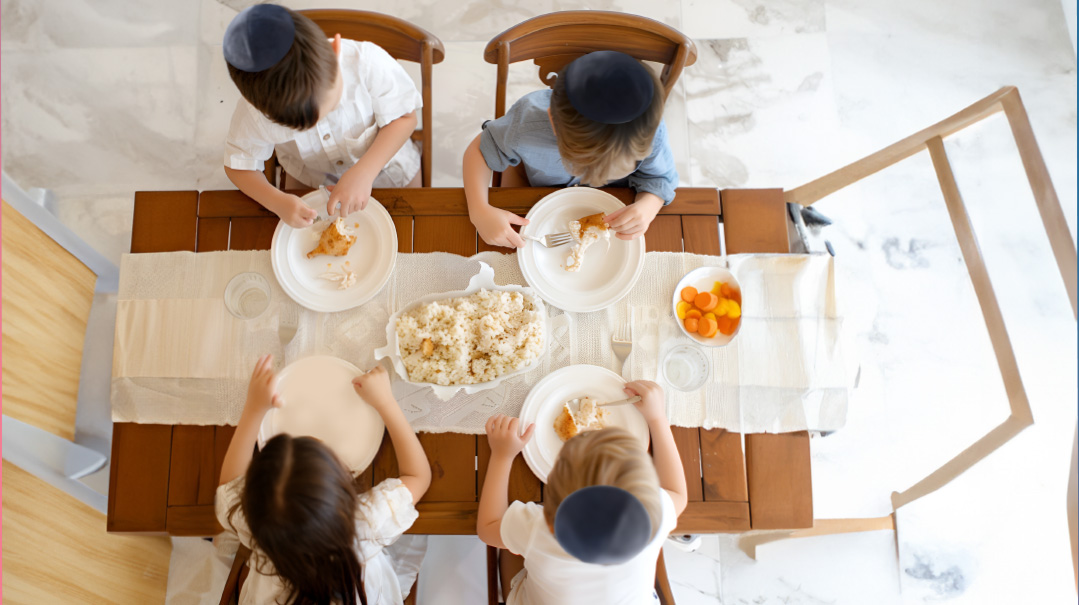The Gardener Sows


They kneeled in tandem.
It was unfamiliar, but reassuring. Her hand was gloved as she picked up a fistful of earth and let it fall through her fingers,
“Anyone can garden, stick a bunch of seeds in the ground, water it, weed it, and watch it grow. Amazing.”
Her daughter seemed to be listening intently, so she continued.
“Some things will grow no matter what you do, or don’t do — like carrots or garlic. Others need a lot of attention, maintenance, fussing, and even then they can flop. But if you want amazing produce that for sure won’t flake out, there’s plenty to know.”
Her daughter was still listening.
“New York is in Zone 6 — that’s our category for climate and soil conditions. If you don’t need all the details, then just ‘Google Zone 6 planting,’ and it’ll tell you what you need to know about what you can grow, when to start, when to transplant, when to harvest everything.”
“What zone is Chicago?”
Right, she doesn’t live here anymore. Karen shrugged, a little unnerved.
“I don’t know, I’ll look it up for you when we’re done.” She looked over at Riva. There didn’t seem to be the judgment she expected to find present in her face. “We’re going to plant eggplant and celery now, it’s their planting season…” She trailed off and started demonstrating, picking up the spade, digging several holes, dropping in the seeds, covering them with soil, patting down, and sprinkling with water.
“You work so quick, do you even pay attention anymore?” Riva asked.
Karen pulled back into a kneel. “Not really, not anymore,”
“How do you know how much to dig out, or how far apart to space them?” Riva seemed to be in awe of her mother.
Karen laughed, picked up the open packet of seeds, and tapped it. “Everything’s written on the back.”
“But you didn’t read the back.”
“I read the back years ago, and I’ve planted eggplant so many times I don’t have to think about it anymore.”
“It’s a motor memory,” said Riva.
“Exactly.”
“Show me again,” Riva said. “This time I’ll follow you.”
Together they dug a few holes, filled, covered, patted, sprinkled, and moved on to the next. A comfortable silence reigned, and then Karen felt someone watching her. Looking up she saw her next-door neighbor, Miriam Steiff, Mrs. Cultured Super-Grandma. Karen looked ahead and saw a middle-aged man walking briskly across the street toward a black Lincoln.
“Was that your son from L.A.?” Karen called.
Miriam nodded. Karen tapped Riva, who looked up and smiled at Miriam, who just nodded again.
“She wanted me to teach her my gardening tricks, so we’re planting a few things here.” Karen felt a need to tell Miriam, show her, show everyone that Riva was home, choosing to spend time with her mother.
Miriam smiled vaguely again. Karen glanced back at Riva and blessed her for dressing appropriately. Their neighbor went back inside and Karen exhaled.
“You never liked her, Ma,” Riva commented.
“I dunno about not liking, definitely not comfortable.”
“Why?”
How could Karen tell her daughter that she never felt secure as a mother and as her next-door neighbor, Miriam Steiff bore witness to her failure? Karen shrugged vaguely.
Riva changed subjects. “I really appreciate you taking the time to teach me,” she said.
Karen pursed her lips as heat flushed her face. What could she tell Riva? At least I can do this for you. I’m sorry for your life. I wish I had done more. Please come inside and see Daddy, even though he’ll probably grump at you.
“You’re welcome,” Karen answered. Both were quiet for a moment, and Riva cleared her throat.
“You know I’m graduating in one month.”
“No! Really?”
Riva beamed for herself. “Yup.”
Karen pulled back, speechless. She did it without me, she thought. She doesn’t even need me at all. But at the same time she glowed in her baby’s accomplishment.
“Summa cum laude,” Riva added.
“Oh, Riva,” Karen broke. She wanted to hug her daughter but didn’t know if Riva would want her to.
“I’m valedictorian, Ma.”
“What?” Karen whispered. With every accolade, the mixture of pride and rejection built.
“Can you come?
“Of course,” Karen said quickly, and now she reached out and squeezed Riva’s open hand. Riva squeezed back. A mother-daughter moment, Karen couldn’t remember the last.
Only after Riva left to the airport, heading back to Chicago, did Karen’s anxiety set in. What would Saul say? Who would take care of him while she went? Would he even let her go?
“She’s not taking care of me.” Though his words were slurred, sounding like he had a mouthful of food just before a swallow, his message was clear. He wasn’t going to budge.
Still, she tried. Not for herself — she knew there was nothing to fight for — but for her daughter. She at least deserved a shot.
“It’s Rachel, it’s your daughter. It’s not like it’s a stranger. Anyway, once I’m gone, who do you think is going to take care of you?”
He would have shifted in his seat to sit up straighter, summon his dignity, but he couldn’t.
“All hypothetical, I’m dying before you. I’m male, I’m older, and I have MS.”
“It’s not hypothetical if I’m asking.” She ignored his death talk, she’s heard it before.
“No, I’m her father, she shouldn’t see me like this if she doesn’t have to. And I don’t want her to see me like this.”
“She’s seen you plenty.”
He tried to wave his right hand dismissively, but it froze mid-gesture. He brought his hand down and covered it with his left hand.
“Seeing and taking care of are two different things. She doesn’t know what it entails. All she sees is me sitting on a chair. I will not have my daughter help me to the bathroom.”
“So what about Alex?”
“He comes once a day for two hours. How is that going to help me? Do everything I need in two hours, spend the rest of the day in bed?!”
“Maybe we can ask him to stay the night, we’d pay him.”
Saul pulled a face.
“What, why not? It’s not a bad idea, I thought you liked Alex.”
“Like is a generous word, I tolerate him, He’s not like the last one, Jose. He talked too much. And he smelled, and he was too rough.”
Karen didn’t shake her head. Jose had been wonderful, he was upbeat, possibly smelled like too much Drakkar Noir, but he was strong. Saul hadn’t liked how easily Jose could maneuver him and his chicken legs from chair to bed to bathroom in his muscled arms. It made him small and weak. Alex, the new home-care worker, struggled mightily with the physicality of the job, had a pinched demeanor — and that made Saul glow. He was not alone in his misery, he was not the only man not strong enough for the world.
“It would just be a night.”
“Too expensive.” He bit.
Karen was quiet. That was probably true.
“We’ll talk about this later, I’m going to make supper.”
“We’re not talking about this — conversation’s over. And don’t make anything with zucchinis from your garden.”
“What’s wrong with my zucchinis?”
“Not your zucchinis, any zucchini. I don’t like them. If I’m dying I might as well eat food that I like. Pick some fresh radishes, do you have any more ready? Those taste better than any I’ve ever bought.”
Karen glowed.
“Make sure you cut them into small enough pieces, so I don’t almost choke on them like last time. Sometimes I think you want to remind me my swallowing is going too.”
Karen turned away to the garden, eyes burning.
Outside she knelt on the mat over the radish bush and fingered the dirty red orbs. She didn’t want to give them to him, not after his comment. The zucchinis would soon be overripe, the radishes still had some time, she decided, and selected five zucchinis — two for a soup, two for a bread, and one for a puree. Passive-aggressive, that’s what Saul always called her. Maybe he was right, he usually was right when it came to evaluating character. So what if she was passive-aggressive? He was sick, and this was the only way she could complain.
The phone was ringing when she reentered the house. It was Rachel, her oldest. Karen turned the ringer off. She had energy for no one. The soup was put up quickly, but when Karen started gathering ingredients for the bread, there was only a half teaspoon of vanilla extract left and the recipe called for one. It’ll be fine without it, she told herself, you can put in vanilla sugar, she rationalized. But a stubborn part of her brain was relentless: You will do something right, it said. Karen listened and got her purse.
The corner grocery was quiet and Karen found a small bottle of pure vanilla extract. The imitation was much cheaper and came with much more, but she was doing this right, all the way. She got on line to pay. There was one person ahead of her, or was it two, no it was one, a grandmother-granddaughter duo. The grandmother had one of those walker seats, and the granddaughter stood close, but not too close as to infantilize her. They were cute.
“Mammela, I feel like the Queen of Sheba, the way you stand next to me. I should’ve gotten old earlier,” the grandmother said, and the two of them laughed. They paid for their groceries, and shuffled their way out, the granddaughter leading, yet still following her grandmother. They took forever.
Karen watched them. It was rude, she knew, but she couldn’t look away. Besides, their backs were turned. Would her grandchild ever do that willingly for Saul? Would Saul ever laugh at his deficiencies? Could there be happiness in limitations?
“You ready, ma’am?” the cashier interrupted. Karen placed the small bottle on the conveyor belt, paid for it, and accepted the bag without looking away. Quickly she outpaced the grandmother-granddaughter duo who had just exited the store. She gave them a backward glance, and saw a smile still lingered around their eyes. Karen felt a pinch in hers, and a surge of heat, of jealousy and hatred toward this duo. How come their challenges don’t seem to define them, even enhance them?
Karen slammed the grocery bag on the counter when got home. The bottle inside it cracked.
It was mostly pooled in the corner of the bag, so she punctured a small hole and let it drain out into the old bottle that she hadn’t thrown out yet. For once, her incompetence had come in useful.
Saul wheeled himself in just as she was finishing up. He looked around the kitchen, sniffed the air.
“Vanilla and zucchini,” he said. “You’re mad at me.”
Karen shot him a look. “I’m not mad at you. Why do you think I’m mad?”
“I told you earlier that I don’t want zucchini, and here you are making two types of zucchini things.”
“Three, actually.”
“Three?” Saul seemed amused now. “There something you want to talk about?”
Karen shifted her weight to one hip and put her hand on it. He wanted to talk, she knew his answer wouldn’t change, and she wasn’t sure she wanted him convincing her he was right, which is what usually happened. He was all sense and logic and follow-through, and she was all feel, and tears and gut, and where did it get her. Three high-achieving kids, uber responsible and capable, who never come home.
“Riva is reaching out to me, and I want to reciprocate.”
“And I’m in your way.”
“Yes.”
“Otherwise you would have booked a flight already,”
“Yes.”
“Did you go to Rachel’s college graduation?”
“She wasn’t valedictorian.”
“That’s the only reason to go to a college graduation?”
“I don’t even think Rachel attended her own graduation. I think she had just had Yaakov, actually.”
“Did you celebrate?”
“I don’t remember. What’s your point?”
“My point is that I very obviously need you and am incredibly against any random person aiding me. Please, a little dignity let me keep.”
“But—”
“Let me finish. Graduating college is obviously not the most important celebration ever, because you didn’t go to Rachel’s. She didn’t even go to her own, you can’t remember celebrating, and she went to NYU, which is right here. And now you want to drop everything — me included — because Riva is graduating college. Does that make sense?”
“No, but—”
“But what? Tell me about your feelings that are getting in the way of my perfect sense,” he said mockingly. Karen ignored him.
“Rachel is not Riva,” she said. “And Riva’s been through so much, and now she’s finally coming back to us.”
“To you. She’s coming to you, she barely said hi to me when she came, and I’m the one who’s sick.”
She barely tolerated you when you were well, you think an angrier version of yourself would draw her in? Karen steamed mentally.
“I just feel like if she’s asking, I have to. I want to,” she answered instead.
“How do you think Rachel would feel?”
“What do you mean?”
“She’s toed the line her whole life. When I was tough with her, she just got stronger. Riva, she, she—” Saul waved his hand again. “She broke your heart, and now you want to reward her for that, for finally seeing the light, and treating her mother like a mensch. You should go treat Rachel for never doing what Riva did. And still, look at Riva, very nice she’s not drinking, doings drugs, and all that at-risk stuff, very nice she pulled herself together and is graduating college with honors. Look at her, she’s not frum, you’re supposed to condone that?”
Karen looked down, then sat down, and was quiet for a while. Only the soft simmer of the soup could be heard.
“What?” Saul demanded, his voice rising now.
Karen met his eyes, then broke away. “Is that how you see this?”
Saul was quiet and waited for her to continue.
“You think Riva was just a bad apple, and now that she’s doing something good, I’m rewarding her for something she should have done in the first place?”
Saul shrugged and nodded. “In a nutshell.”
Karen struggled to find her words. How could Saul have no questions, no regrets? How could he put it all on Riva? Did he really think that everything Riva put them through was of her own doing, and they played no part? That there weren’t amends to be made on both ends? And what about just the facts that they were the parents here, didn’t that mean they should be doing more. She sat there staring intently at the cherry wallpaper they had hung together over 20 years ago.
“You make sense,” she conceded. “But that’s not how these things work. We all did a lot of things we shouldn’t have, but if we want to move forward, you have to give a little.”
“I did nothing wrong.” Saul said. “I treated her the way I treated all my kids. Very firm, but very secure. I don’t know what her problem was.”
“She was a kid, she was sensitive. She needed a different approach, a softer touch.”
“Well, she definitely got that with you. You let her get away with everything. Never said no.”
“You were so tough.”
“So I was the bad cop and you were the good one.”
“Yes— I mean, no. I mean, I don’t know, I didn’t know what I was doing.”
“You didn’t trust me. You didn’t trust how I was mechanech them. You waffled, and I was consistent. They’d have these meltdowns as kids, as teenagers, and you’d rush to please, give them what they thought they wanted, throw lollies at them or whatnot. And all they needed was to be held real tight, told a truthful no.”
“You make it sound so simple.”
Saul didn’t answer.
“So Riva is my fault.” Karen asked.
“No, she’s neither. We tried, but she made her choices. I’ll always love her, she’s my daughter, but I’m not running after her. And I won’t let you, either.”
“It’s not running after. It’s meeting in the middle.”
“The cost is too much. You’re choosing her over me. You’re choosing her over Rachel.”
“That’s how you feel.”
“Not feel, know. I know this. And you should buy Rachel something. I’m thinking she deserves something for being a non-heartache child.”
He was right, he was wrong. Could he be both? Was there any winning in these circumstances? Did he not get that Riva did everything, pulled herself together without any of their help and guidance? Her success had nothing to do with them. Karen had to go, otherwise, was she a mother?
“I see your face, I know what you’re thinking. No. No, you can’t leave.”
She looked at his face. It had grown harsher and more severe in the past few years. His body was thin and vulnerable. Why had she deluded herself into thinking the MS might give him some perspective? She must have read too many inspirational stories in the magazines. She wasn’t going to the graduation, there was no way she could do that to Saul.
“I’m staying right here with you,” she said softly.
“Thank you,” Saul said. “Now can you pick me some radishes?”
Karen laughed, though she wanted to cry too.
Later that night, when the leftover soup was put away, and Saul was reading in the den, Karen sat in her study in front of her computer and opened up her e-mail. The cursor blinked, waiting for her to write something, but what could she tell Riva to make it right? She sat, but words weren’t coming. The screen suddenly lit up with a Skype call. It was Riva.
“Hi,” Karen answered with too much life.
Riva sat behind a desk demurely. “What’s up?” Riva intuited.
Karen bit her lip. “I’m not going to make it.” She waited for Riva to ask why, she didn’t, so Karen continued. “I can’t leave Daddy right now. That’s the simple and true answer. But talking to Daddy about it raised so many questions about my relationship with you, and you with him, and how we parented or not. Life is complicated. Did you know that?”
Riva nodded, listening. She’s a good listener, Karen realized.
“I want to come so badly, I want to be there for you, in the way a mother should be, because I’m not sure I did right by you, even though I tried. But other things, competing priorities… it’s hard.”
And still Riva listened. She gave a small nod, encouraging her mother to continue.
“I’m was so happy you came to learn gardening from me, I felt I was finally giving something over to you that I knew for certain was right. And I wanted to give back, to show you, Riva — I know we got lost somewhere, but let’s talk, let’s figure this out, and can I please have a second chance at being your mother. But now I’m not coming, and I feel like I’m failing you again.”
Riva shook her head now, but she was smiling.
“No, Mommy. You coming would have been symbolic. This conversation is real. It’s okay. I really understand. I’ll call you tomorrow, ’kay?”
Karen was too overwhelmed by her tears, she waved her hand weakly goodbye, and the call ended.
She sat a while, still, just thinking. What was it Saul said kids need most of the time? To be held tight, a truthful no. She had just done that and it had worked. On Riva. That just confused her more, and the tears continued in a freefall. She didn’t hear Saul wheel himself in until he started talking.
“She’s just like you, you know, that understanding, that sensitivity. Definitely your daughter.”
Karen’s body shook harder as the tears, angst, love, and confusion combined and plucked its unique melody on her soul.
“You’re gonna make me ask you to help me get to bed. You know I hate that.” Saul’s voice regained its usual edge.
Still crying, Riva’s mother rose to be there for her husband.
(Originally featured in Mishpacha, Issue 729)
Oops! We could not locate your form.













